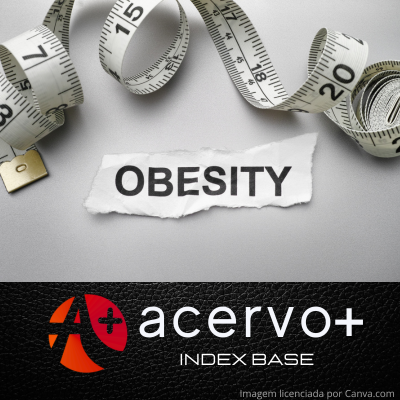Combate a obesidade infantil no contexto da atenção primária
##plugins.themes.bootstrap3.article.main##
Resumo
Objetivo: Buscar na literatura já publicada métodos e estratégias eficazes no combate a obesidade infantil no contexto da atenção primária. Métodos: É uma revisão integrativa de literatura com abordagem sistemática, realizada por meio de busca nas bases de dados Scielo, PubMed e BVS. Foram aplicados os descritores (Primary Health Care) AND (Pediatric obesity). Foram incluídos estudos randomizados controlados (RCT), ensaios clínicos randomizados em cluster e ensaios híbridos, entre 2019 e 2024, língua inglesa e disponíveis na íntegra. Foram excluídos estudos que não integrem os critérios de inclusão. Resultados: Foram identificados 2.988 estudos, desses, após análise criteriosa, foram selecionados 21 artigos para compor esta revisão. Foi identificado que o uso da tecnologia pode ser uma estratégia poderosa no combate à obesidade infantil, a partir de aplicativos educativos que contam com orientações sobre dieta e exercícios físicos. Ademais, programas educacionais centrados na família resultaram em maior adesão e maior eficácia, com melhorias duradouras na saúde das crianças e na dinâmica familiar. Outro aspecto analisado foi a influência do agente comunitário, que desenvolvendo projetos de educação em saúde promoveu maior engajamento da população. Considerações finais: É evidente que a atenção primária à saúde é um pilar fundamental no combate à obesidade infantil.
##plugins.themes.bootstrap3.article.details##
Copyright © | Todos os direitos reservados.
A revista detém os direitos autorais exclusivos de publicação deste artigo nos termos da lei 9610/98.
Reprodução parcial
É livre o uso de partes do texto, figuras e questionário do artigo, sendo obrigatória a citação dos autores e revista.
Reprodução total
É expressamente proibida, devendo ser autorizada pela revista.
Referências
2. EK A, et al. A Parent Treatment Program for Preschoolers With Obesity: A Randomized Controlled Trial. Pediatrics, 2019; 144: 2.
3. EPSTEIN LH, et al. Family-based behavioral treatment for childhood obesity implemented in pediatric primary care: A randomized clinical trial. JAMA: the journal of the American Medical Association, 2023; 329(22): 1947-1956.
4. FOSTER BA, et al. Growing healthy together: A randomized clinical trial using parent mentors for early childhood obesity in low-income, Latino families. Childhood obesity, 2021; 18(3): 168-177.
5. HAMPL SE, et al. Clinical practice guideline for the evaluation and treatment of children and adolescents with obesity. Pediatrics, 2023; 151(2).
6. HEERMAN WJ, et al. Competency-Based Approaches to Community Health: A Randomized Controlled Trial to Reduce Childhood Obesity among Latino Preschool-Aged Children. Child Obesity, 2019; 15(8): 519-531.
7. LIU Z, et al. Effectiveness of a multifaceted intervention for prevention of obesity in primary school children in China: A cluster randomized clinical trial. JAMA pediatrics, 2022; 176(1).
8. LUQUE V, et al. Impact of the motivational interviewing for childhood obesity treatment: The Obemat2.0 randomized clinical trial. Pediatric obesity, 2024; 19(7).
9. MESSITO MJ, et al. Prenatal and Pediatric Primary Care-Based Child Obesity Prevention Program: A Randomized Trial. Pediatrics, 2020; 146(4).
10. NATALE R, et al. Cluster-randomised trial of the impact of an obesity prevention intervention on childcare centre nutrition and physical activity environment over 2 years. Public health nutrition, 2021; 25(11): 3172–3181.
11. OMS. ORGANIZAÇÃO MUNDIAL DA SAÚDE. Obesity and overweight. [S.l.]: WHO, 2023. Disponível em: https ://www.who.int/news-room/fact-sheets/detail/obesity-and-overweight. Acessado em: 11 de novembro de 2024.
12. OMS. ORGANIZAÇÃO MUNDIAL DA SAÚDE. Diretrizes sobre manejo da obesidade infantil na atenção primária. Genebra: OMS, 2022. Disponível em: https ://www.who.int/publications. Acessado em: 11 de novembro de 2024.
13. PARRA-SOLANO A, et al. Reducing the number of times eating out helps to decrease adiposity (overweight/obesity) in children. Nutrients, 2024; 16(17).
14. RAYNOR HA, et al. Reach of a low-intensity, multicomponent childhood overweight and obesity intervention delivered in an integrated primary care setting. Translational Behavioral Medicine, 2020; 10(3): 760-769.
15. RESNICOW K, et al. Outcome of BMI2+: Motivational interviewing to Reduce BMI through primary care AAP PROS practices. Pediatrics, 2024; 153(2).
16. SACHER PM, et al. Addressing childhood obesity in low-income, ethnically diverse families: outcomes and peer effects of MEND 7-13 when delivered at scale in US communities. International Journal of Obesity, 2019; 43(1): 91-102.
17. SIMIONE M, et al. Family-centeredness of childhood obesity interventions: psychometrics & outcomes of the family-centered care assessment tool. Health and Quality of Life Outcomes, 2020; 18(1): 179.
18. SMITH JD, et al. Health behaviour outcomes of a family based intervention for paediatric obesity in primary care: A randomized type II hybrid effectiveness-implementation trial. Pediatric Obesity, 2021; 16(9).
19. STARK LJ, et al. Maintenance Following a Randomized Trial of a Clinic and Home-based Behavioral Intervention of Obesity in Preschoolers. Journal of Pediatrics, 2019; 213: 128-136.
20. TUCKER JM, et al. Evaluation of a Primary Care Weight Management Program in Children Aged 2⁻5 years: Changes in Feeding Practices, Health Behaviors, and Body Mass Index. Nutrients, 2019; 11(3): 498.
21. TUCKER K, et al. Results from La Vida Buena (The Good Life): A quasi-experimental intervention of a community health worker-led family-based childhood obesity program for Latino children 5-8 years of age on the U.s.-Mexico border. Health promotion practice, 2022; 24(6):1196–1205.
22. WARD DS, et al. Keys to healthy family child care homes: Results from a cluster randomized trial. Preventive Medicine, 2020; 132.
23. YUN YJ, et al. Association of dietary habits with general and abdominal obesity in Korean children and adolescents: cluster analysis of nationwide population survey data. Frontiers in endocrinology, 2024; 15.
24. ZHANG E, et al. Validation of remote anthropometric measurements in a rural randomized pediatric clinical trial in primary care settings. Scientific reports, 2024; 14(1): 411.

